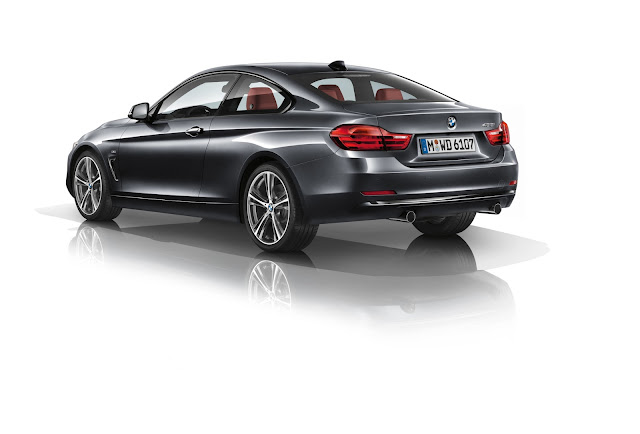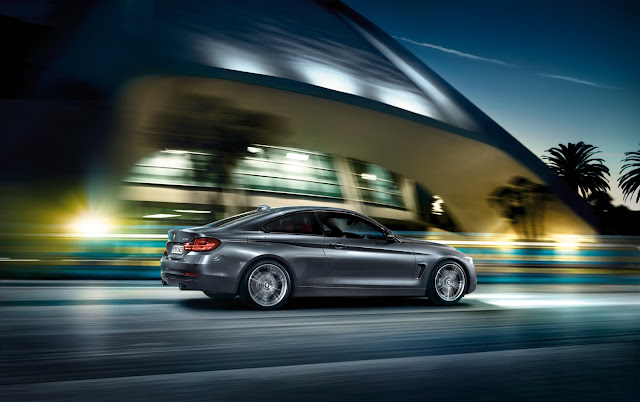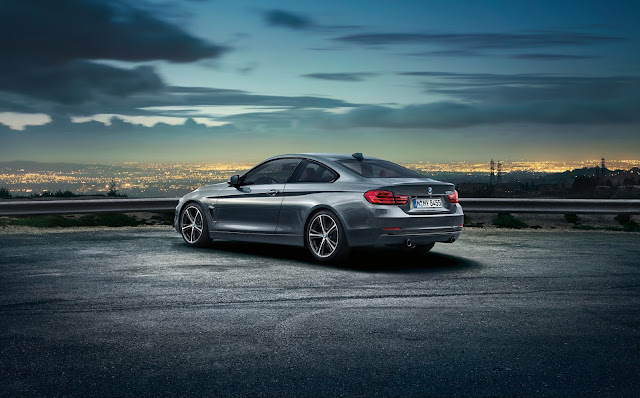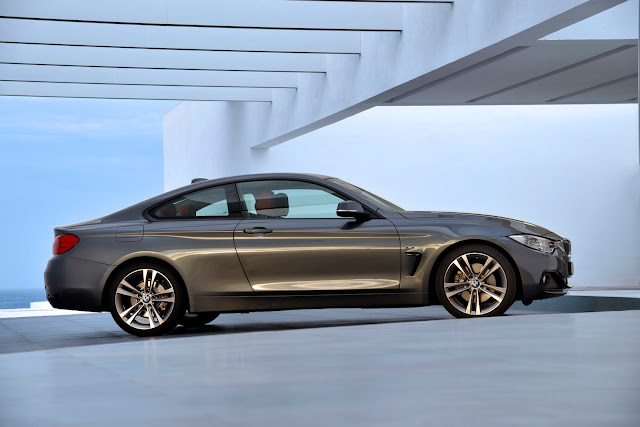 |
| The BMW i3 range extender engine which is made by Taiwanese manufacturer Kymco for BMW. |
There is still a lot of unknown information about the i3. BMW has been extremely conservative about what information they offer. While they have stated it will have an electric range of 80 to 100 miles and cost about the same as a nicely equipped 3-Series, the two biggest questions still remain: What will the EPA range rating be and exactly what will it cost? However right behind those two questions for many people is: What will the performance be when the range extender is in use?
The range extender engine will be a 650cc Kymco engine borrowed from the BMW C650 GT scooter. It will be highly optimized to lower noise & vibration and will only put out 35hp, compared to its 65hp when used for the scooter. The gas tank will be a miniscule 2.8 gallons and BMW has stated it will extend the range of the car about another 90 miles, effectively doubling the cars range. However many
journalists are wondering will that added 90 miles be an ultimate driving experience or the ultimate disappointment?
 |
| The REx will fit nicely next to the e-motor |
The Chevy Volt is the closest vehicle to compare the REX i3 to, even though it's not exactly an apples to apples comparison. The Volt has a 1.4 liter gas engine that puts out 80hp to power the generator, more than double the output of the i3's gas range extender engine. However the Volt weighs 1,000lbs more than the i3 will and isn't nearly as efficient so it would naturally need a larger, more powerful range extender engine. The Volt's robust range extender allows it to drive uninhibited while the range extender is maintaining the car's charge. The million dollar question is will the same be said about the i3? That answer looks like it will be no, it won't. BMW's
Product and Technology Communications spokesman, Dave Buchko said of the range extender: "
The i3 range extender is meant to enable the car to go a little further than the pure BEV on those rare occasions when driver needs to go a little further. It is not intended for daily use. We've said that the REx [range extender] will double the effective range of 80-100 miles. I have not seen anything to suggest that it would not be capable of doing so.". Then BMW North American CEO Ludwig Willisch said while the range extender is running: "
The car will not be as agile," Willisch said. "
It will not have full power when it runs on the combination."
I'm not exactly sure what "not intended for daily use" means though. That sounds like you'll break if you use it every day and that's obviously not going to be the case. Will the cars performance be so inhibited while in REx mode you wouldn't want to drive it that way every day? I find it difficult to believe BMW would add the range extender if it was so weak it offered terrible performance while in use. Willisch must have confidence it will perform admirably in REx mode though because he predicted at least 80% of US i3 buyers will order it with the range extender. I've also heard it described by some as a "limp home mode" by some(not BMW people) and I also don't believe that is accurate either.
 |
| An i3 with the range extender was caught at a gas station refueling in this spy photo. The gas filler door will be located on the front passenger quarter panel and the charge port will be on the rear passenger side quarter panel, just above the wheel. |
A big determination of how it will perform in range extender mode is how much of the battery the car holds as a buffer when the range extender turns on. Lets say the i3 normally only uses 90% of its 22kWh capacity. That means the all electric i3 will utilize about 19.8kWh's. If the REx i3 holds another 10% as a buffer to help with short bursts of needed energy than the range extender will turn on after using only 17.6kWh's of the 22kWh pack. This will allow the car to perform better when in REx mode but it will also mean the car will drive about 10 miles less on electricity. The larger the buffer the better the REx performance but the shorter all electric range. I hope BMW allows you to turn off the REx for those times when you could make your destination on pure electricity if you only need a few miles after the REx would have turned on. That way you could utilize the full ~19.8kWh that a BEV i3 has available, without reserving the buffer needed for the REx since you don't intend to need it. Of course the percentages of the battery pack utilization I'm using here are just guesses on my part, but I expect them to be pretty close to reality.
My guess is it will be pretty much in between the hobbled horse and "ultimate driving EV" when the range extender is in use. I think it will drive fine on flat terrain, and can probably even drive along at 70mph in those circumstances. However introduce an extended incline or times when you need to go 75 or more to keep up with traffic and the car could quickly find itself gasping for enough energy to maintain its motion. It definitely won't be a "It'll get you home but you'll have to crawl along at 30mph" but lets just say you'd lose if you try to autocross in REx mode. Then again, if BMW does reserve a fair amount of the battery back as a buffer, it could perform very well for the first 20 miles or so, before the stored energy gets to a minimum and the REx is working at maximum output to sustain the charge level.
The bottom line is if you really just want the security of knowing you'll never have to call a tow truck to get home, then the REx will be worth its weight in gold for you. I've been there on the side of the road a couple times in the past four years falling short of my destination so I know it will be a valuable asset for those circumstances. However if you plan to use the range extender to drive hundreds of highway miles to make a far off destination, then I'm guessing this isn't the right EV for you. Horses for courses. Hopefully, we'll get the answers to these questions and all the technical specifications of the i3 soon. It launches in Europe in the fall so the wait is nearly over.





















































































































































